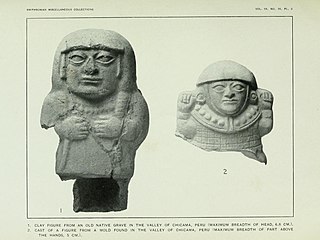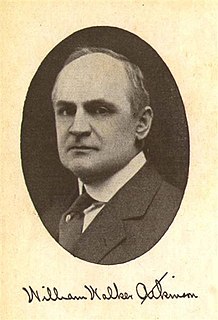A Quote by Edward Bulwer-Lytton, 1st Baron Lytton
Art does not imitate nature, but founds itself on the study of nature, takes from nature the selections which best accord with its own intention, and then bestows on them that which nature does not possess, viz: The mind and soul of man.
Related Quotes
Again, if the world is destroyed, it must needs either be destroyed according to nature or against nature. Against nature is impossible, for that which is against nature is not stronger than nature. If according to nature, there must be another nature which changes the nature of the world: which does not appear.
After decades of faithful study, ecologists have begun to fathom hidden likenesses among many interwoven systems. ...a canon of nature's laws, strategies, and principles...
Nature runs on sunlight.
Nature uses only the energy it needs.
Nature fits form to function.
Nature recycles everything.
Nature rewards cooperation.
Nature banks on diversity.
Nature demands local expertise.
Nature curbs excesses from within.
Nature taps the power of limits.
Nature is man's inorganic body -- that is to say, nature insofar as it is not the human body. Man lives from nature -- i.e., nature is his body -- and he must maintain a continuing dialogue with it is he is not to die. To say that man's physical and mental life is linked to nature simply means that nature is linked to itself, for man is a part of nature.
Nature is seen by humans through a screen of beliefs, knowledge, and purposes, and it is in terms of their images of nature, rather than of the actual structure of nature, that they act. Yet, it is upon nature itself that they do act, and it is nature itself that acts upon them, nurturing or destroying them.
The soul of man, left to its own natural level, is a potentially lucid crystal left in darkness. It is perfect in its own nature, but it lacks something that it can only receive from outside and above itself. But when the light shines in it, it becomes in a manner transformed into light and seems to lose its nature in the splendor of a higher nature, the nature of the light that is in it.
The disembodied soul does not part with Nature when it leaves the earth; life but, rather, it rises to a plane of Nature which is fuller, richer and sweeter in every way than the best of which the earth dwelling soul dreams. The dross of materiality burned away by the astral vibrations, the soul blossoms and bears spiritual fruit in the new life.
Man is the only animal who does not feel at home in nature, who can feel evicted from paradise, the only animal for whom his own existence is a problem that he has to solve and from which he cannot escape. He cannot go back to the prehuman state of harmony with nature, and he does not know where he will arrive if he goes forward. Man's existential contradiction results in a state of constant disequilibrium. This disequilibrium distinguishes him from the animal, which lives, as it were, in harmony with nature.
How shall we define occultism? The word is derived from the Latin occultus, hidden; so that it is the study of the hidden laws of nature. Since all the great laws of nature are in fact working in the invisible world far more than in the visible, occultism involves the acceptance of a much wider view of nature than that which is ordinarily taken. The occultist, then, is a man who studies all the laws of nature that he can reach or of which he can hear, and as a result of his study he identifies himself with these laws and devotes his life to the service of evolution.
For us, mind has nature for its premise, being nature's truth and for that reason its absolute prius. In this truth nature has vanished, and mind has resulted as the idea arrived at being-for-itself, the object of which, as well as the subject, is the concept. This identity is absolute negativity, for whereas in nature the concept has its perfect external objectivity, this its alienation has been superseded, and in this alienation the concept has become identical with itself. But it is this identity therefore, only in being a return out of nature.





































